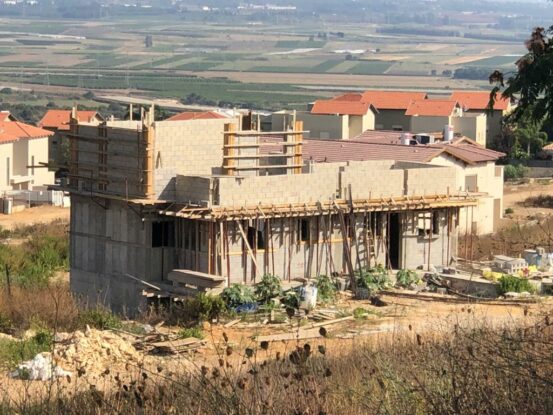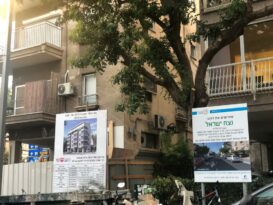The coronavirus pandemic slowed down the Israeli property market, and drove home sales in Israel to a historical low point, according to data published on July 14 by the Ministry of Finance.
Findings show that the number of apartment sales in Israel during May was the lowest number reported in the same month over the last 17 years. The number of completed transactions was around 6,500, 28% lower than those recorded in May 2019, and the lowest since May 2003, during the 2nd Intifada (Arab uprising).
However, this is still a significantly higher level of transactions than the one recorded in April 2020, whereby a shutdown was imposed upon the population, during which only 2,100 apartments were sold. That was the lowest monthly level recorded since the Ministry of Finance began monitoring the data, 20 years ago.
Out of all the homes sales in Israel executed during May, about 4,300 were pre-owned apartments, while developers sold 2,200 new apartments – a figure reflecting a 32% decrease compared to last May. 900 of the apartments were sold at a discounted price, as part of the “Target Price Program” for first-time homebuyers, and only 1,300 apartments were sold at market price.
It should be noted that these figures are published only a few days after the Israeli Government published a series of steps it aims to take in order to “awaken” the dormant market, the first of which is to reduce the purchase tax on property investors, which is currently 8%. According to publications, the Minister of Finance Israel Katz intends to decrease the tax rate to 5%, aiming to improve the viability of investment in Israeli real estate. An additional initiative by Yaakov Litzman, the Minister of Housing, stipulates that grants will be given to apartment buyers in periphery areas.
The sharpest decrease in homes sales – in Jerusalem
Parallel to the Ministry of Finance data, the Central Bureau of Statistics (CBS) also published data regarding the scope of new home sales in Israel. The data indicate that overall, the number of new apartments sold during the 3-month period March-May 2020 was 6,250 new apartments, a 38.1% decrease compared with the three preceding months (December 2019-February 2020).
The CBS also published a segmentation of the acquisition scope according to cities, which indicates that Jerusalem experienced the sharpest decrease in homes sold in Israel, approximately 75%, in the number of new apartments sold. Only 159 apartments were sold in the city during the 3-month period March-May, compared to 621 apartments from December through February. In Ramat Gan, adjacent to Tel Aviv in Central Israel, a 64% decrease was experienced in the number of apartments sold, from 752 to 270. In Beer Sheva in Southern Israel, a 45% drop was experienced, from 366 to 202. Tel Aviv experienced a more moderate, 14% decrease, from 545 apartments sold during December through February to 467 sold from March through May.
However, not all cities in Israel experienced this decrease in homes sales. Apartments sold in Ashkelon, situated in Southern Israel, remained similar during both periods, around 400 apartments. In Rishon Le’Zion the number of apartments sold remained around 200 during both periods.
Most popular homes – apartments ready for immediate handover
An additional detail that arises from the review, is that the demand for apartments ready for immediate handover, whose construction was completed, increased during the Coronavirus pandemic. While during normal times, 9% of the apartments sold by developers are ready for immediate possession, during March, in which the Coronavirus crisis broke out, the rate of the apartments ready for handover was 22% out of the overall acquired new apartments. In April, its rate was 16%, and in May 13%. The data also indicates that 25% of new home sales in Israel during May should be available for possession within six months at the most.
On the other hand, a sharp decrease in home sales in Israel was experienced in the scope of apartments acquired “off-plan”, meaning, apartments that have not yet been built. Historically, these apartments have been popular among investors since the price is customarily 10%-15% lower compared to similar apartments that are already under construction, and the waiting period is worth the potential gains. However, during the coronavirus pandemic period, it seems that very fewer buyers are interested in taking the risk of purchasing a property whose completion date is so far off.







